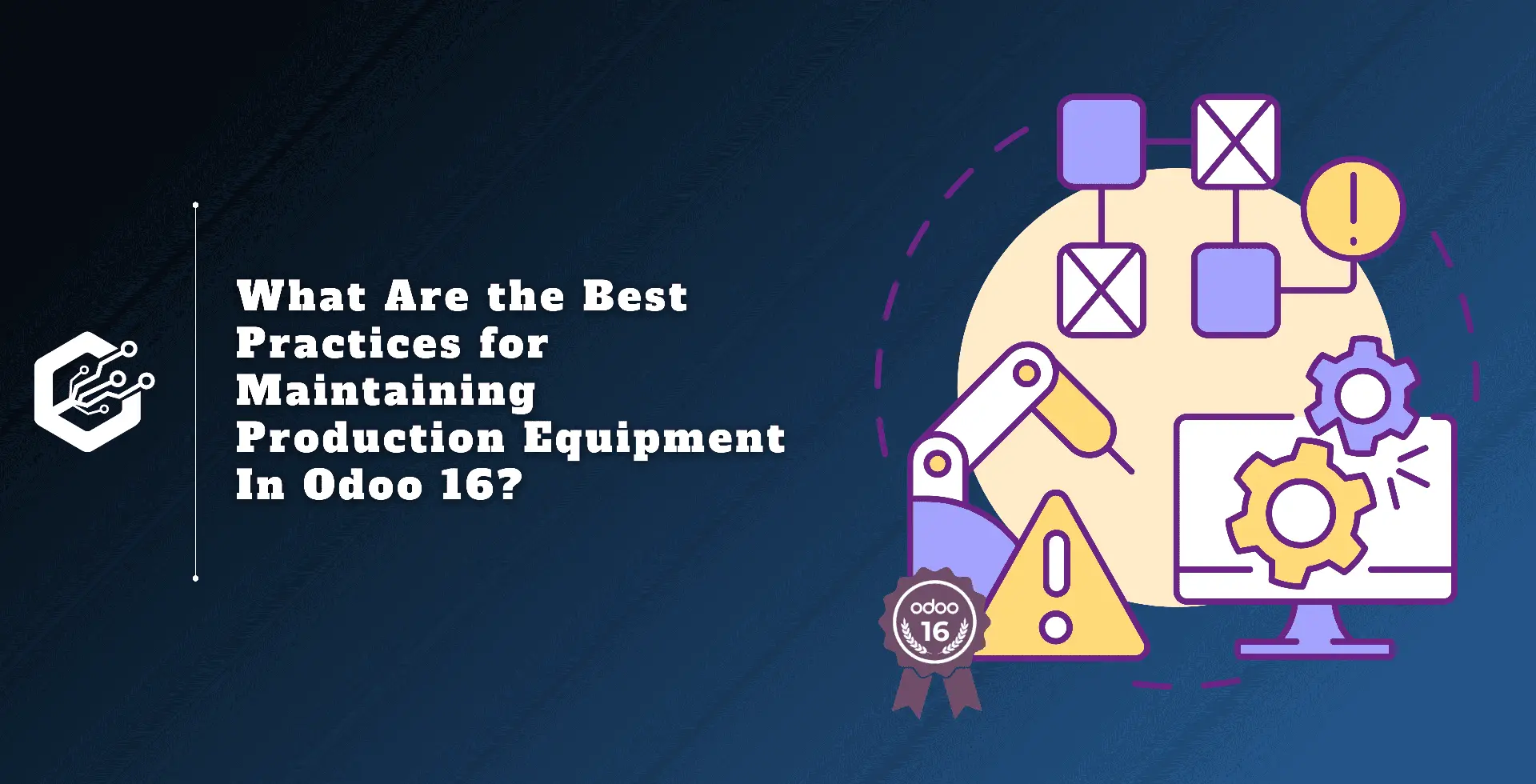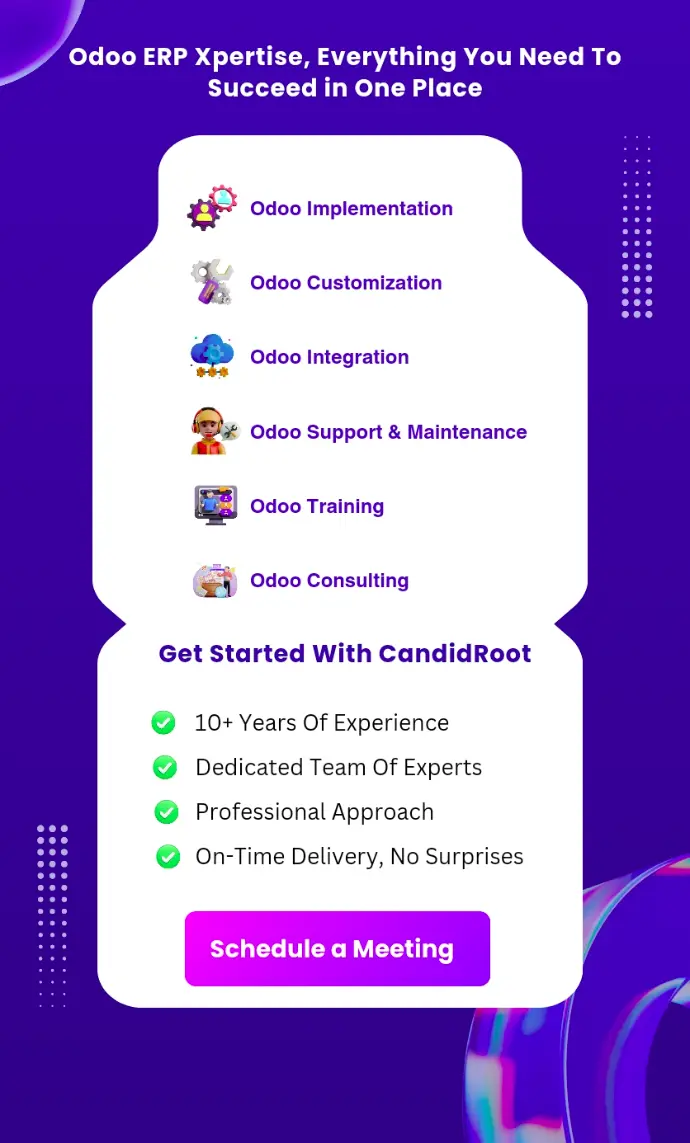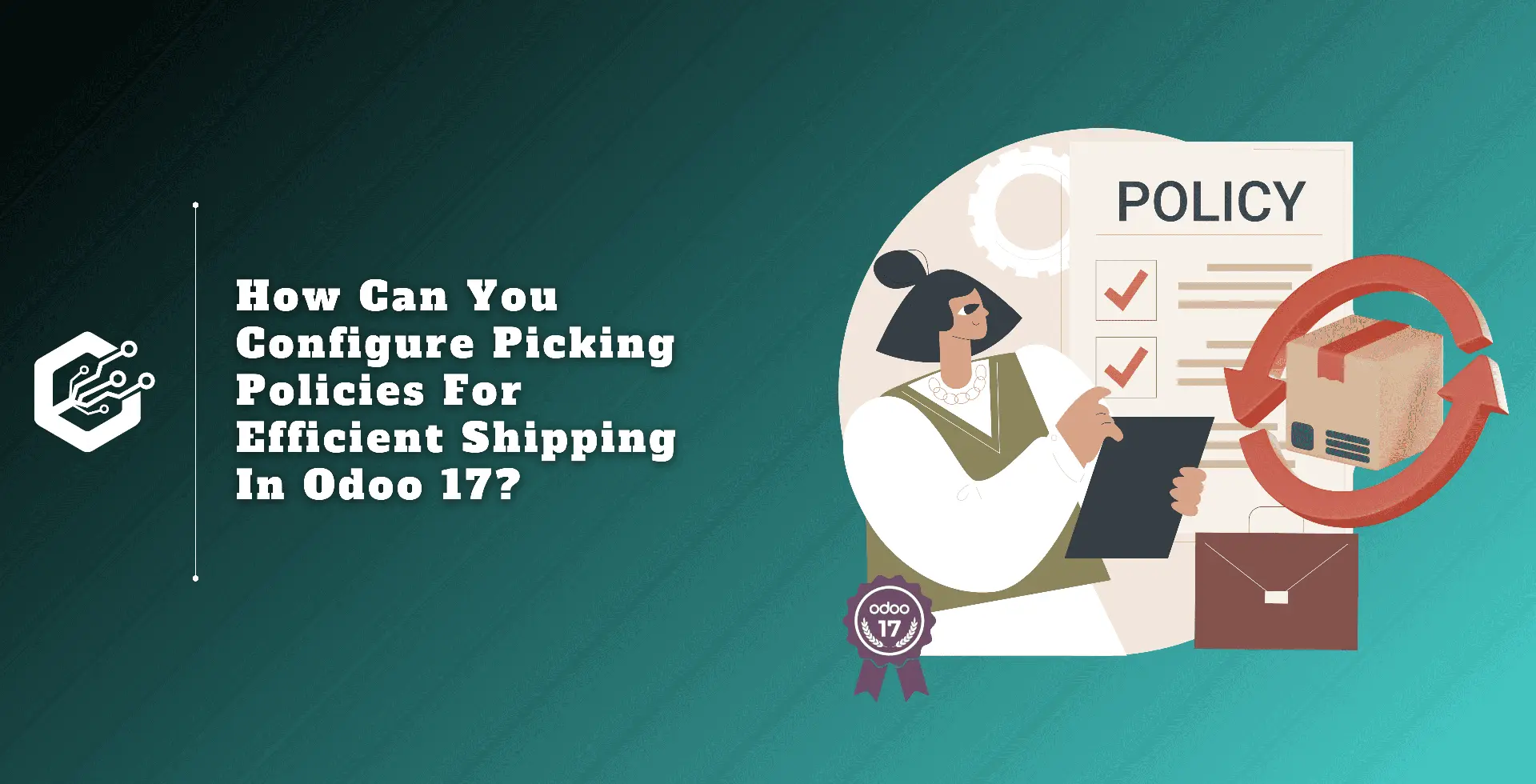Equipment Management is important in the manufacturing process. If equipment fails while processing a work request, it will have an influence on the entire manufacturing process.
To minimize losses, start the maintenance process as soon as the equipment fails. Odoo includes modules for manufacturing and maintenance.
As a result, equipment maintenance is simple before and after production. Let’s see how it works in Odoo 16.
The maintenance module can be used to create new equipment. Visit the maintenance module; the equipment tab is available.
Then pick the machines and tools option. In order to add a new piece of equipment, click the new button.

Include the equipment name within the equipment. Then insert additional details such as Category, company, who used it, maintenance team, technician, assigned date, scrap date, and place of use.
The user can also indicate the work center where the equipment will be used.
The generated equipment in this case is a spinning machine used in the Garment Factory work center.
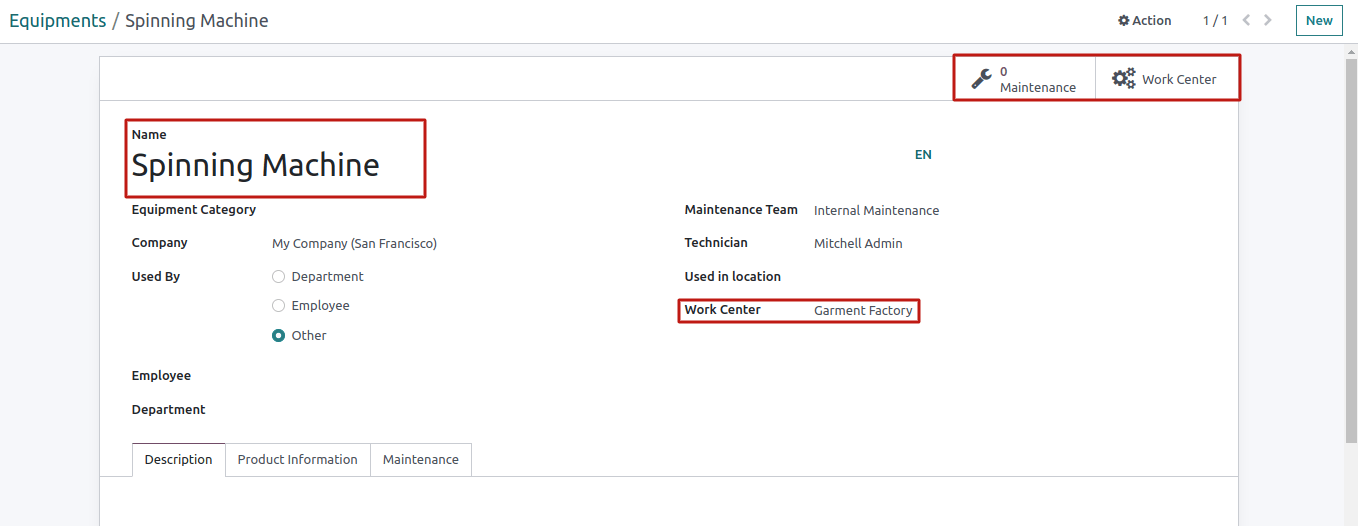
In the product information tab, provide product details such as the vendor name, reference, model, serial number, equipment cost, effective date, and warranty expiration date.
The equipment becomes operational on that date, which serves as the effective date in this case.

The maintenance tab will be updated with information on equipment upkeep. Thirty days is the interval between preventive maintenance.
From the effective date to 30 days, or from June 1 to 30 days, the next day for preventative maintenance is now July 1. There is a ninety-day increase in the expected average time between failures.

This equipment includes two smart tabs. One is a Workcenter, while the other is a Maintenance request. The first tab displays all of the maintenance requests that have been made for this item.
There is no request at the moment. A second smart tab workcenter should now open.
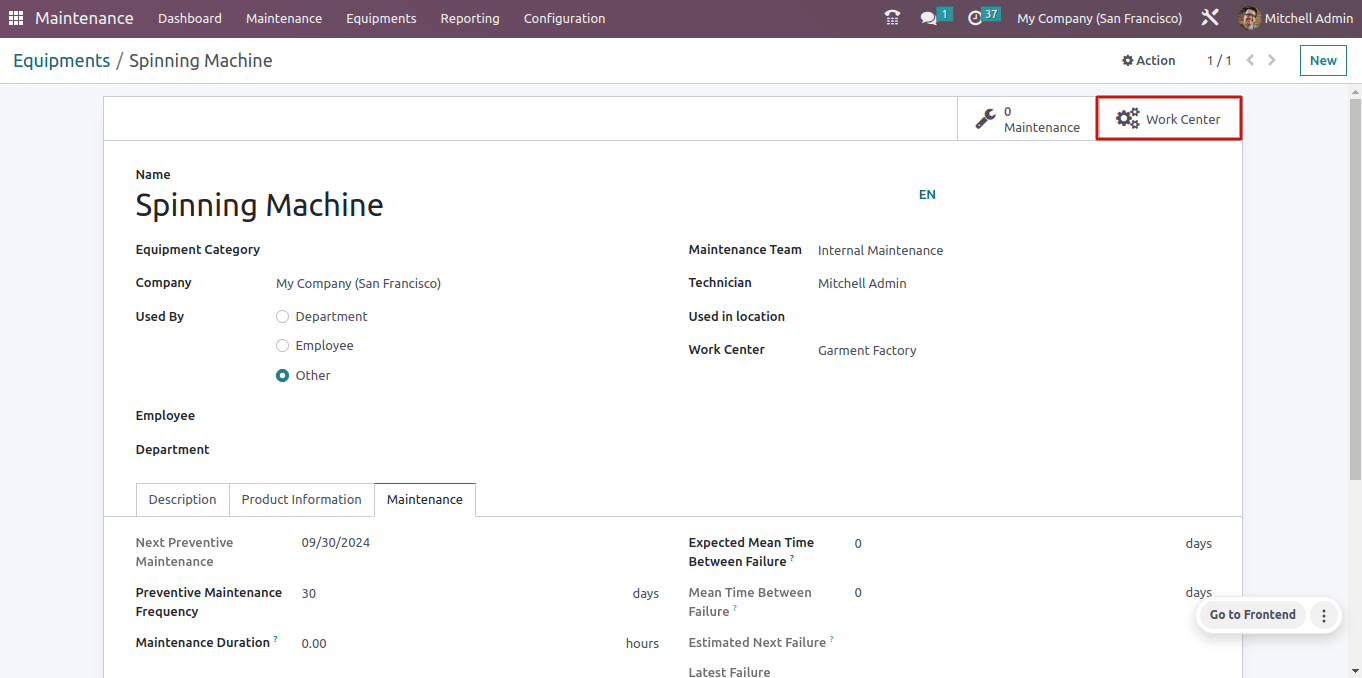
The workcenter where this equipment was installed is shown. The workcenter in this case is a garment factory. Following that, a new tab within the workcenter called Equipment is introduced.
This provides details about the equipment’s maintenance, such as MTTR and MTBF.
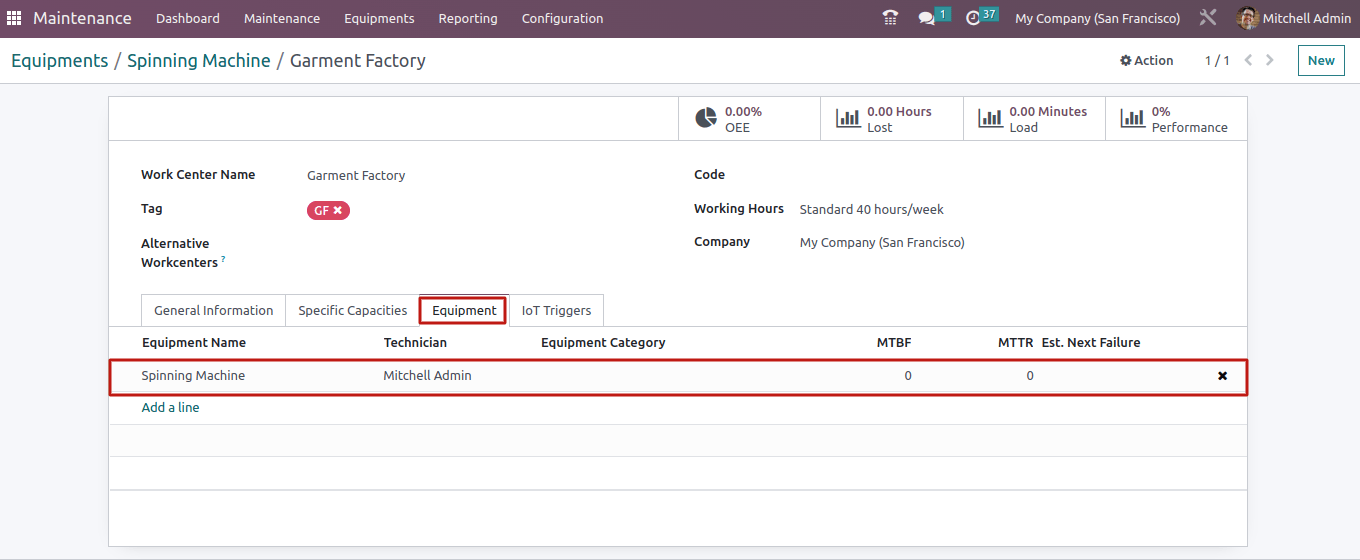
Let’s create a bill of materials for the project, cotton is the chosen product, with cotton fiber as the chosen material. "Manufacturing this product" is the BoM type for this product.
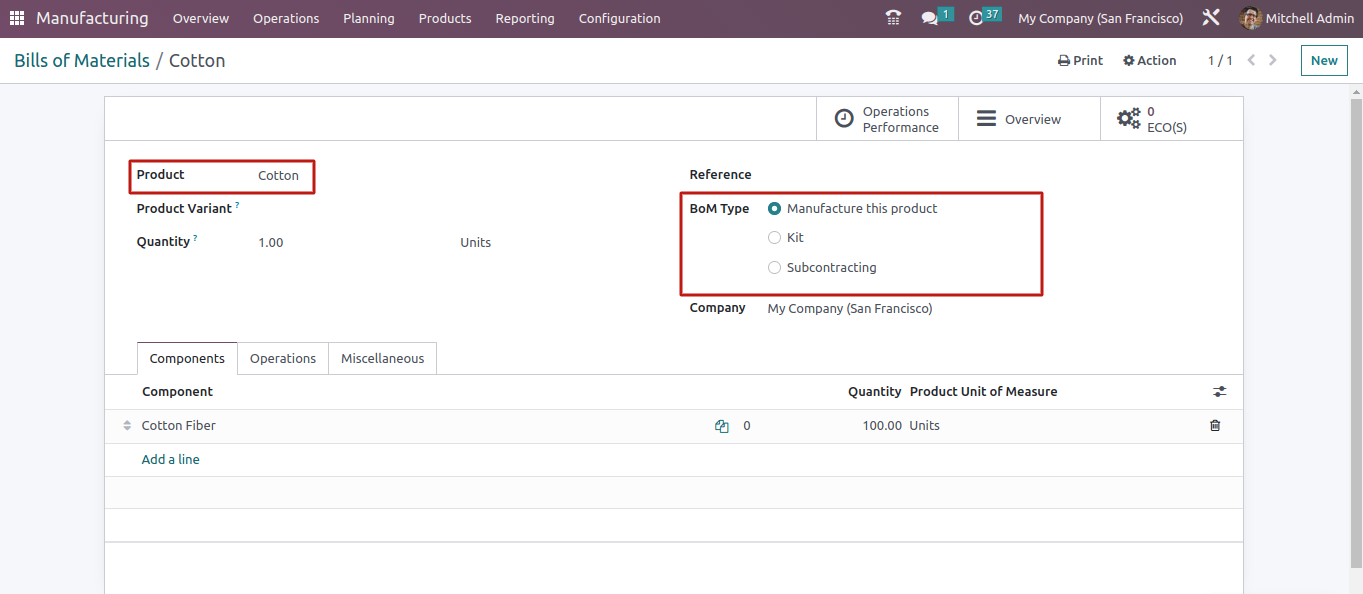
To complete the production process, two steps must be followed. Ginning is the first step in this process, which takes place in the assembly line 1 work center.
The second process is called spinning. Spinning machine equipment is necessary to do this activity.
The Garment Factory field includes spinning machines. As a result, this technique was carried out inside the Garment Factory work center.
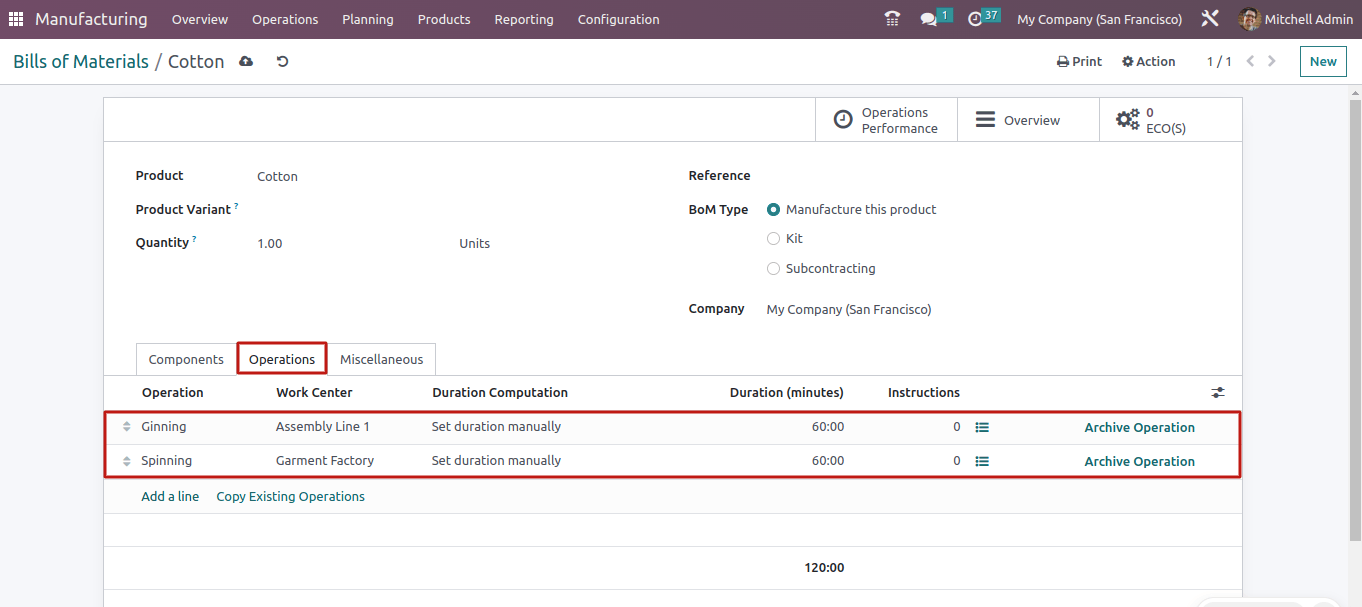
After you’ve entered all of the information, save the bill of materials and proceed with the production method. To create a new manufacturing order, click operations and select manufacturing orders. Create a new one.
Select cotton as the product. When you upload the created bill of material, all of the details entered there will be updated immediately. Following that, press the confirm button.
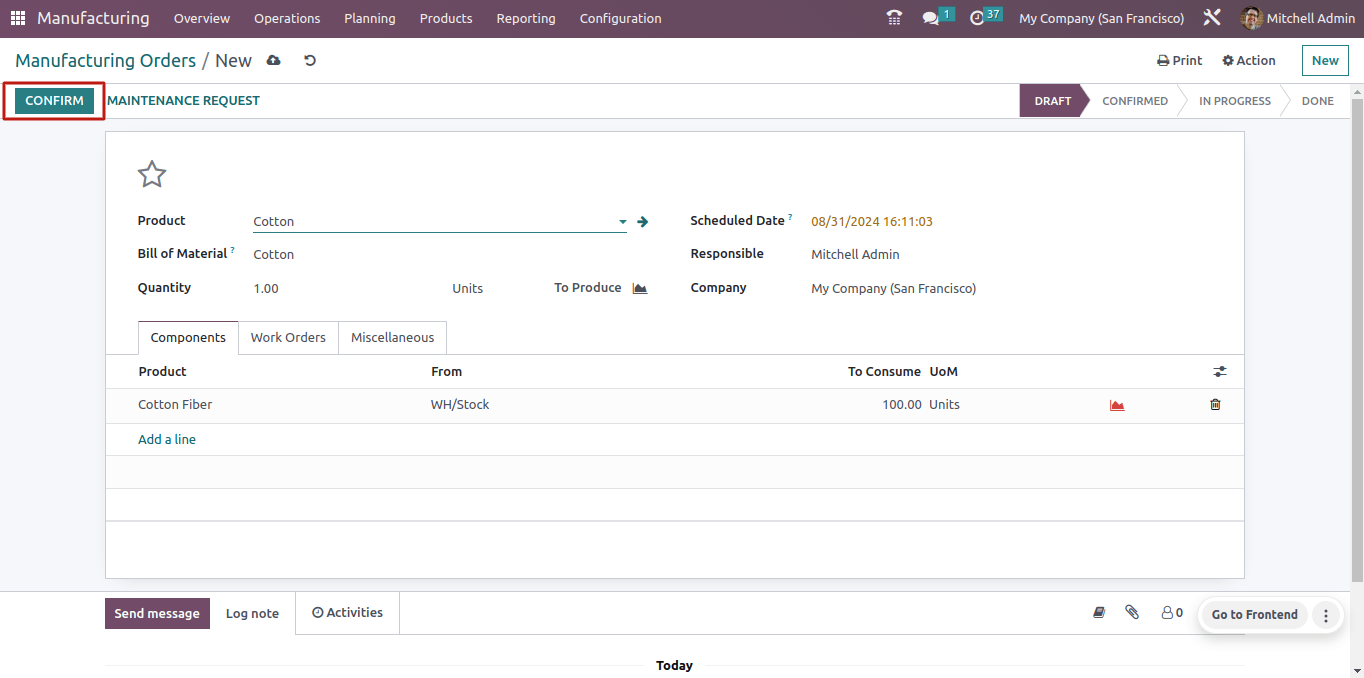
After the surgery is validated, the Ginning stage is moved to Ready. Press the start button to get the procedure started. Once the first process is complete, the second one can begin.
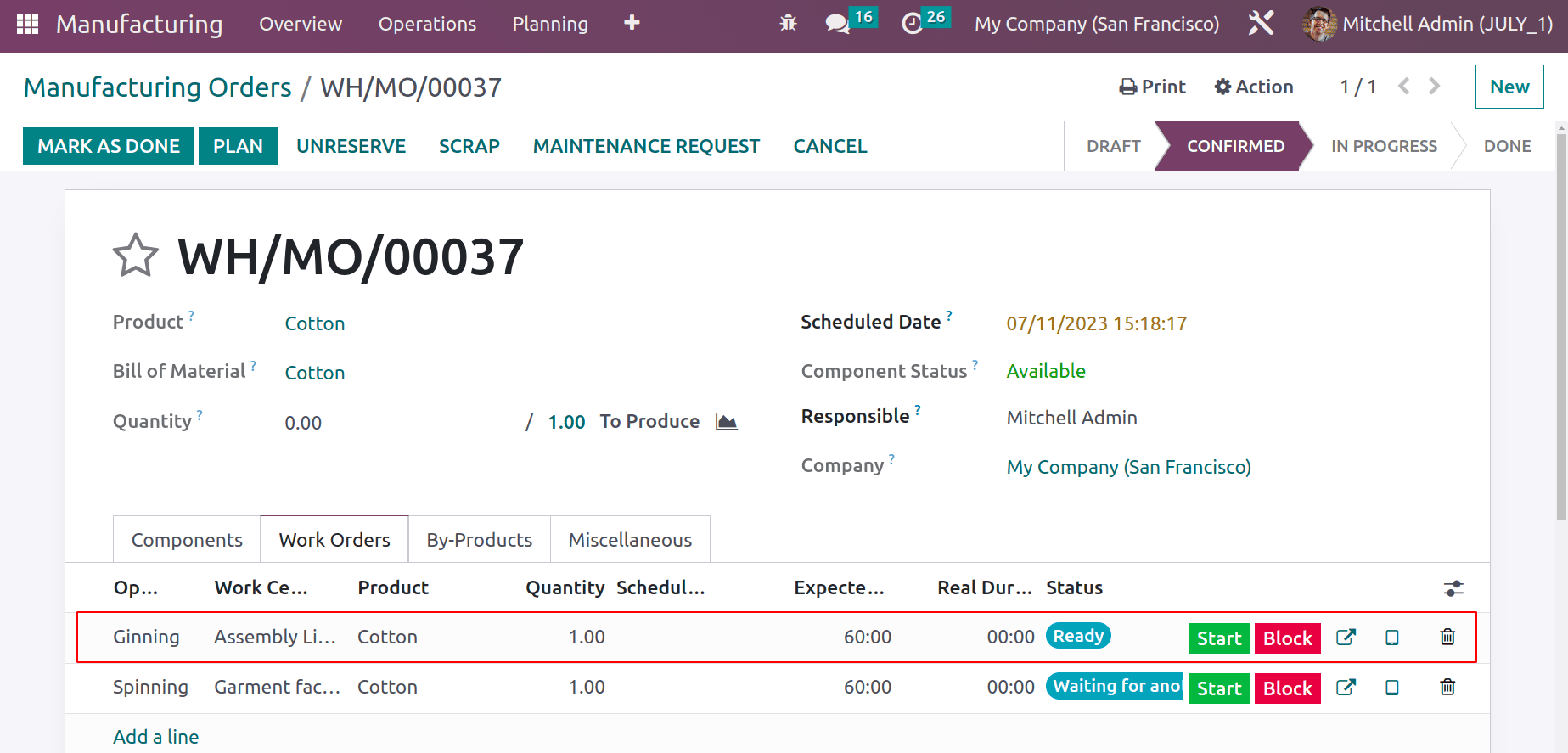
After the first operation is completed, the second one enters the Ready stage. The operation will begin after you click the start button.
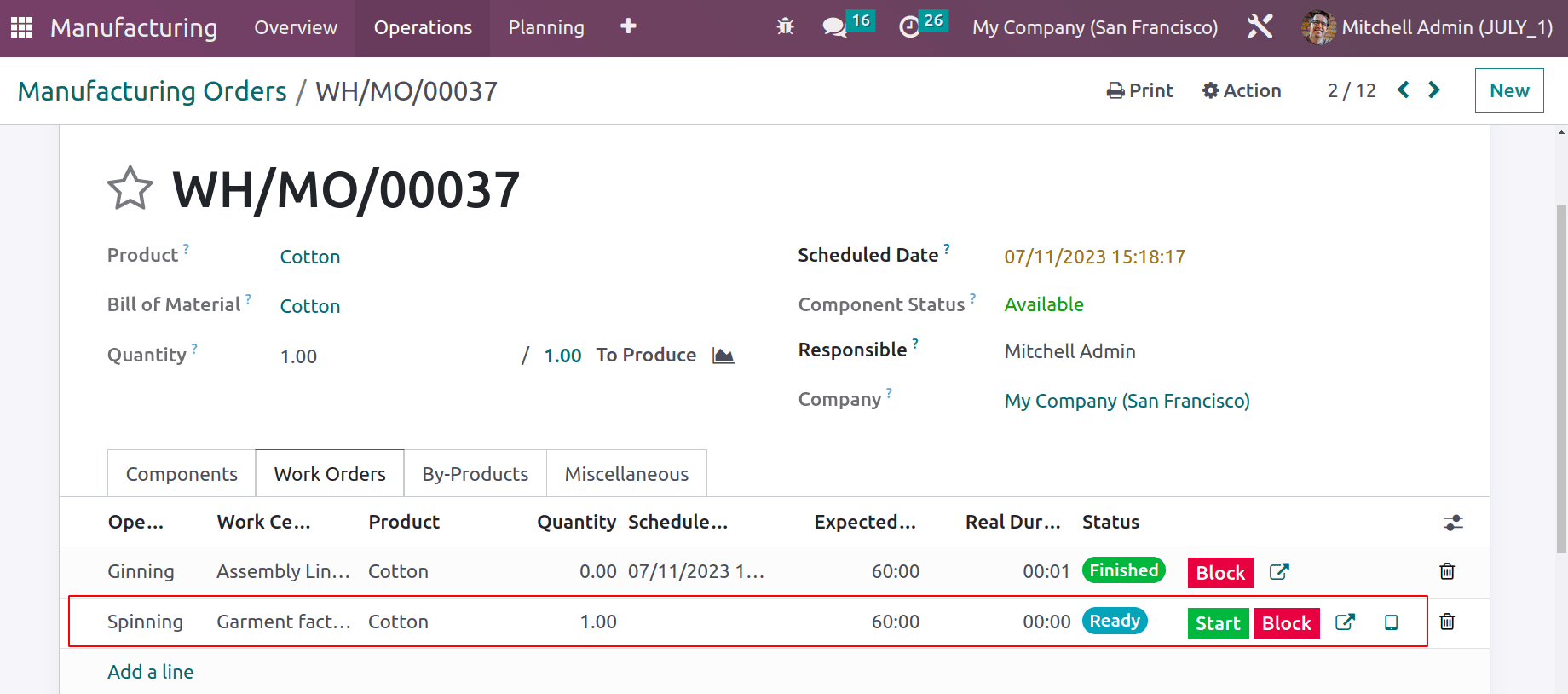
Consider the possibility that the equipment will be destroyed in between operations.
In such instances, the operator can request maintenance from the production module, reducing the requirement to go to the maintenance module to submit a maintenance request.
Let's check how this happened. For this, select the tablet view of the operation Spinning.
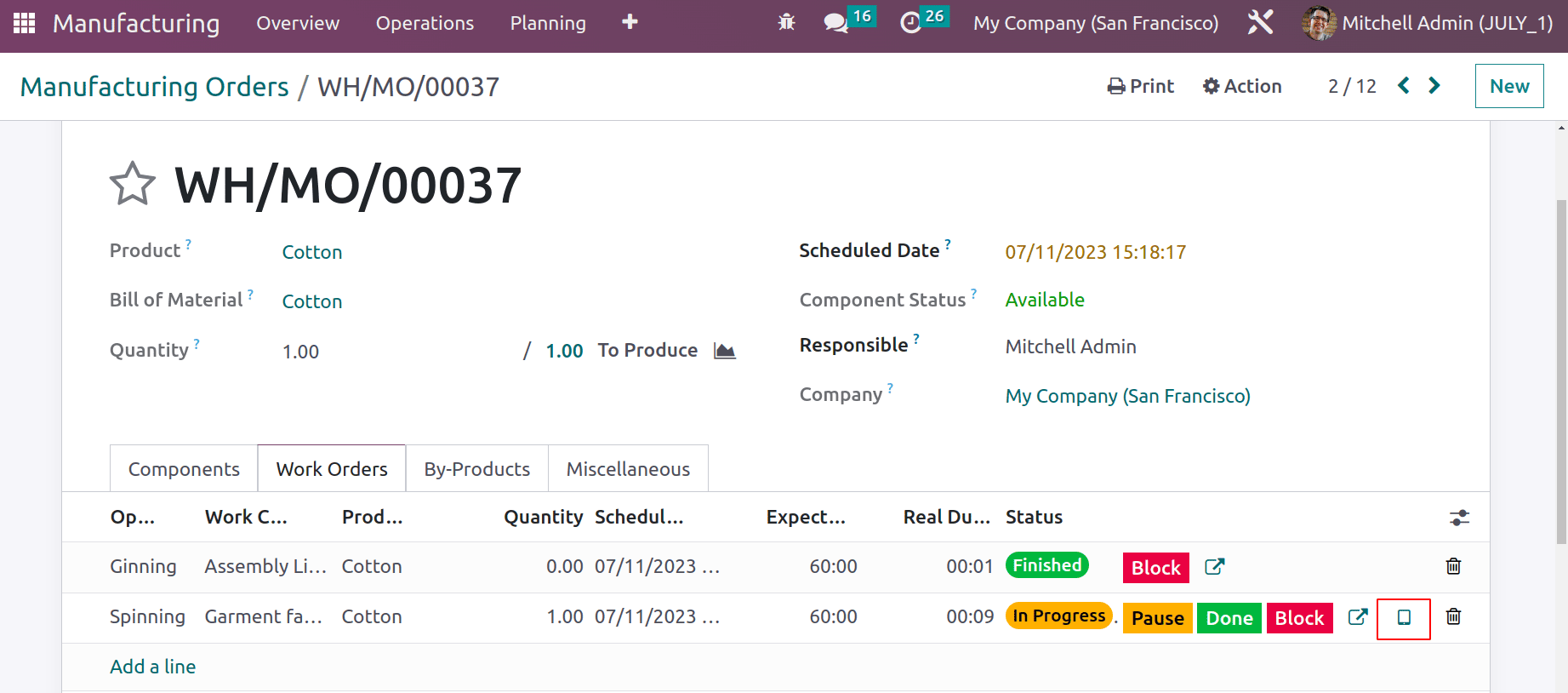
There is a button called Maintenance Request that can be used to create new maintenance requests. Click on it.
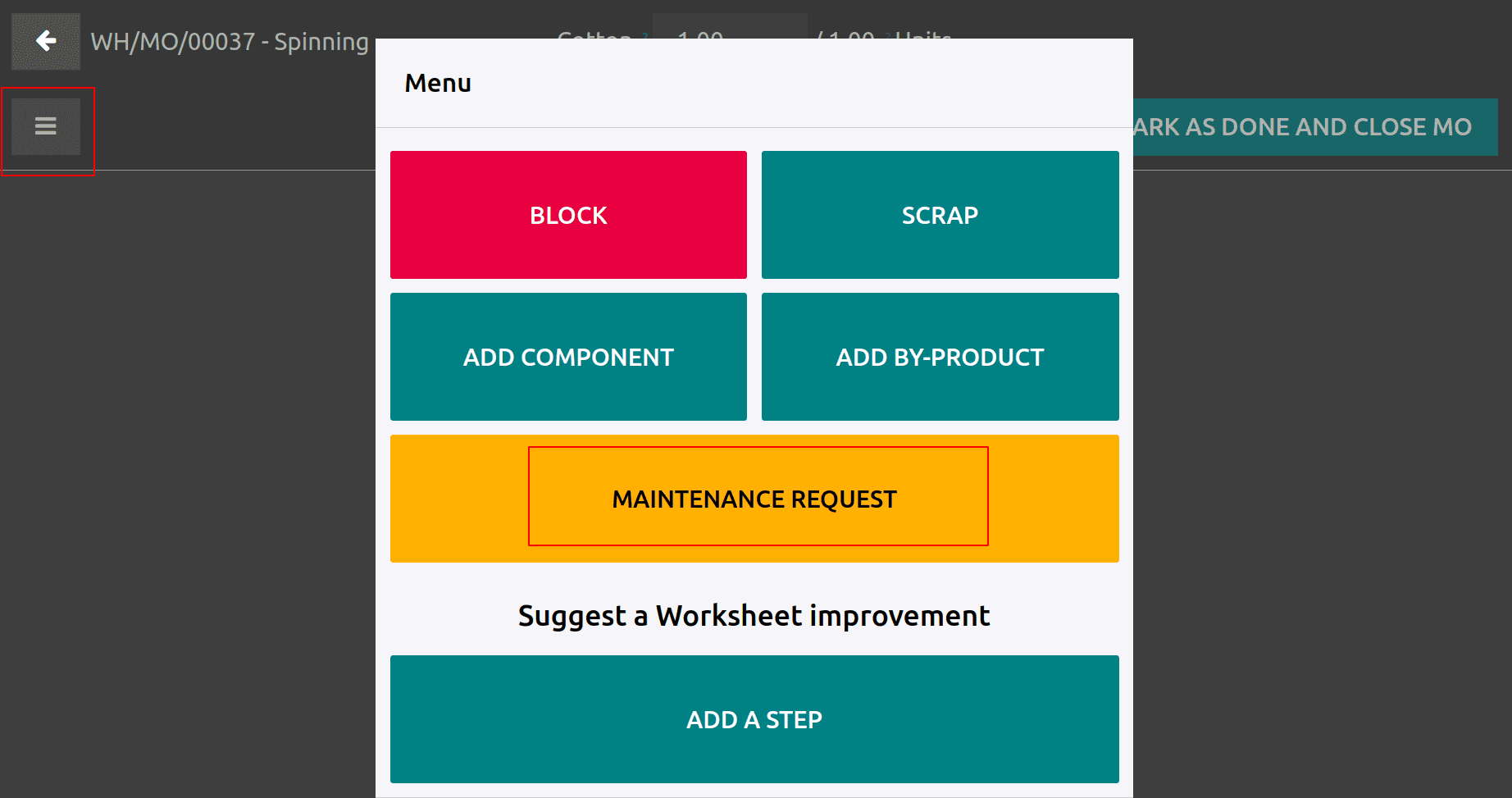
Add the request. Here you can select the equipment. Details such as manufacturing orders and work orders are updated there. Save the request.
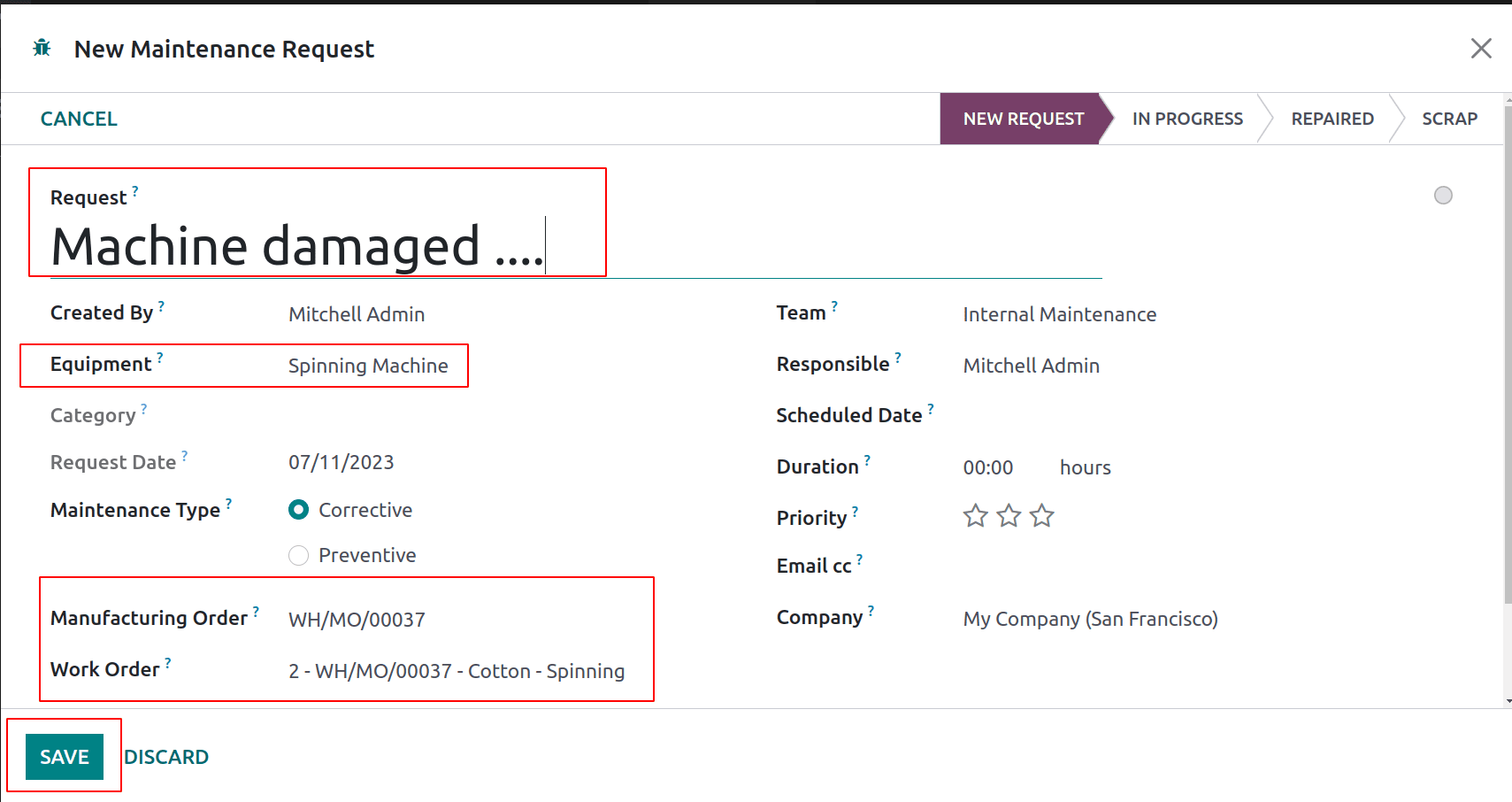
Prior to it, the operator might prevent the procedure from being performed. To do this, click the Block button.
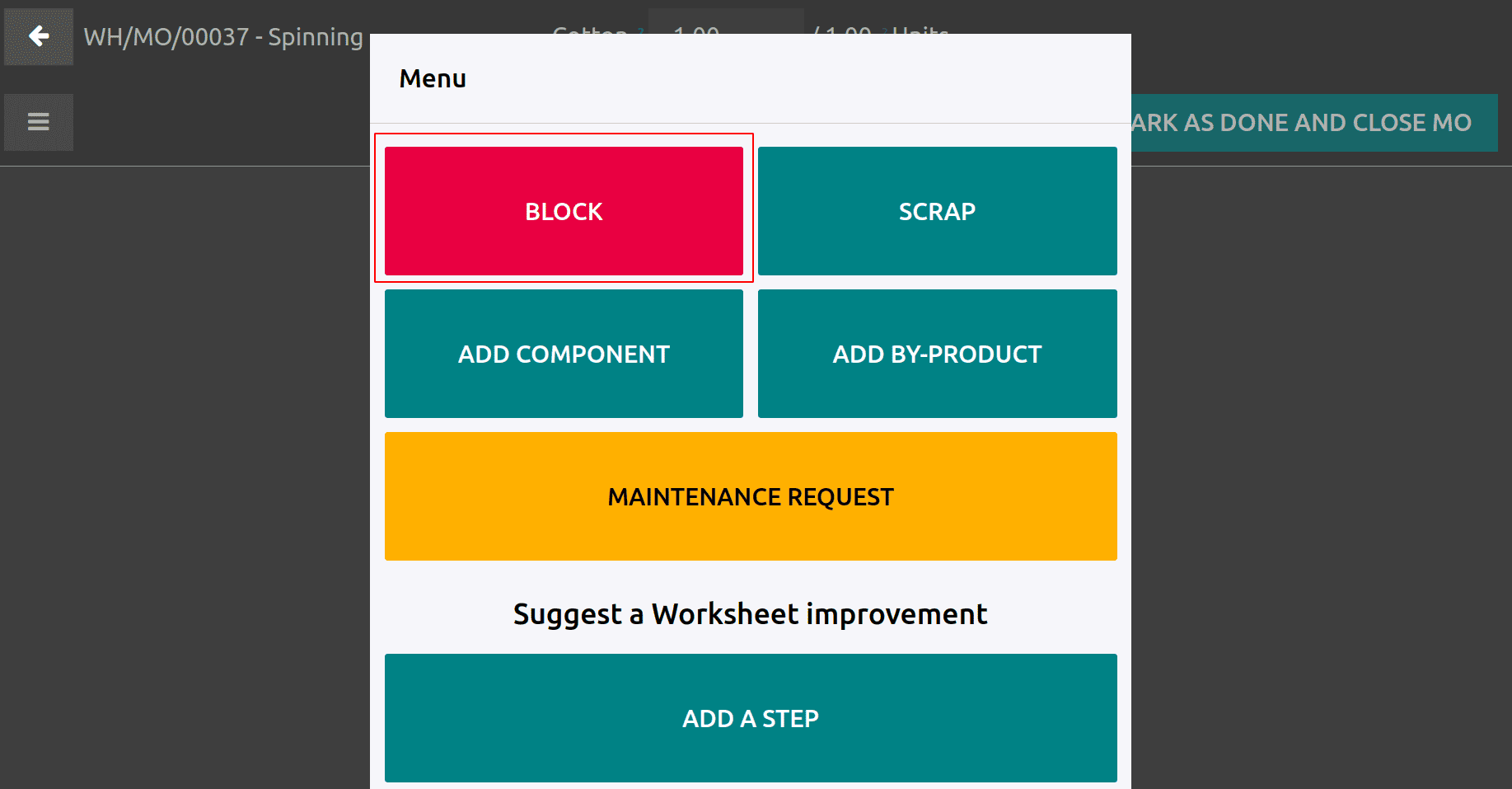
Before blocking, the operator must specify a loss cause. Here, Equipment Failure is listed as a reason. Click the block button.

The operation is currently blocked. Then, select the 'MAINTENANCE REQUEST' option to submit a maintenance request. After completing the maintenance request, the operator can unlock it.
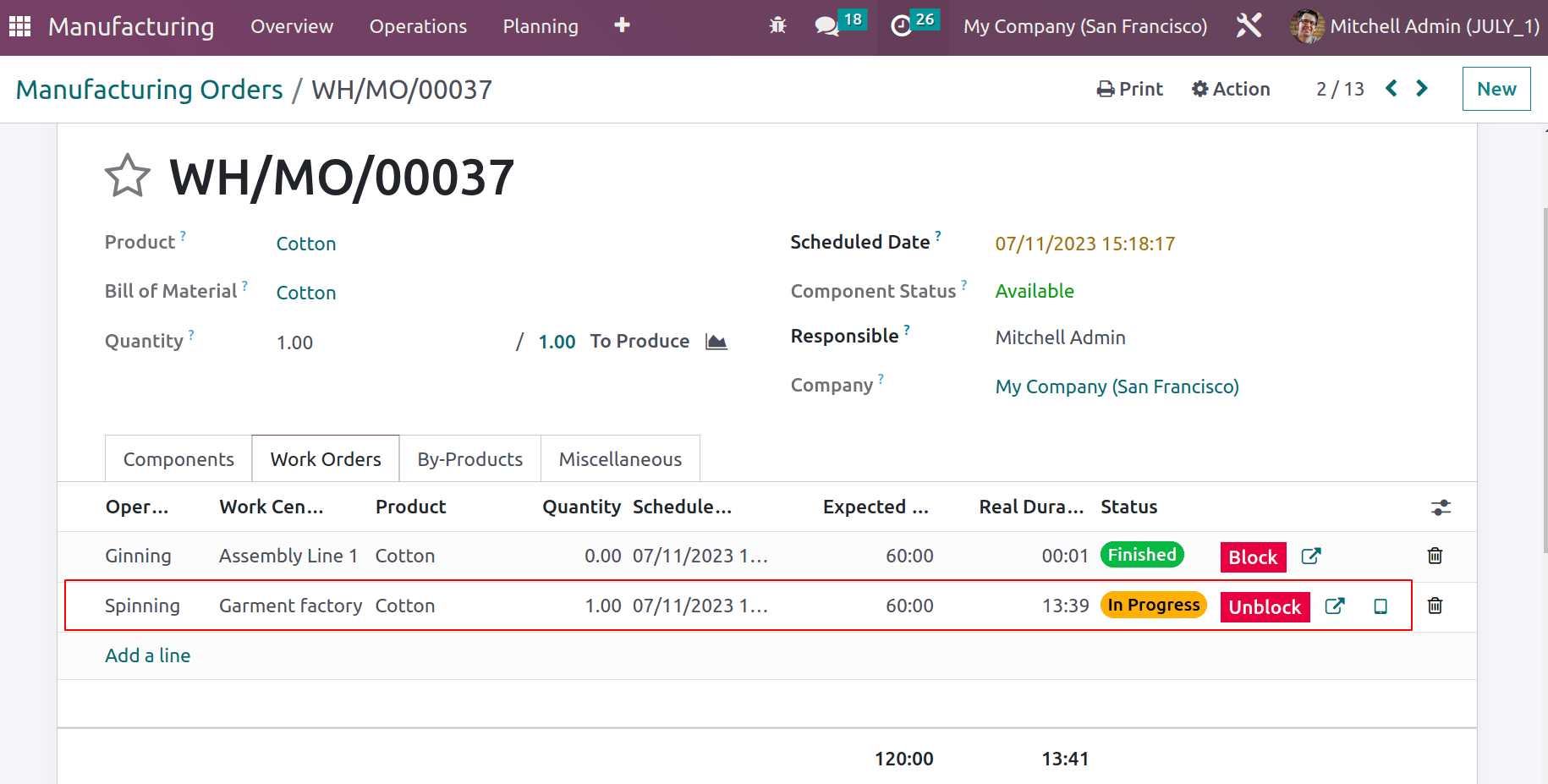
Let's review the request within the maintenance module. Navigate to the Maintenance module and select Maintenance Request from the tab.

In the New stage, you may see the request you created. Open the request and resolve the issue.
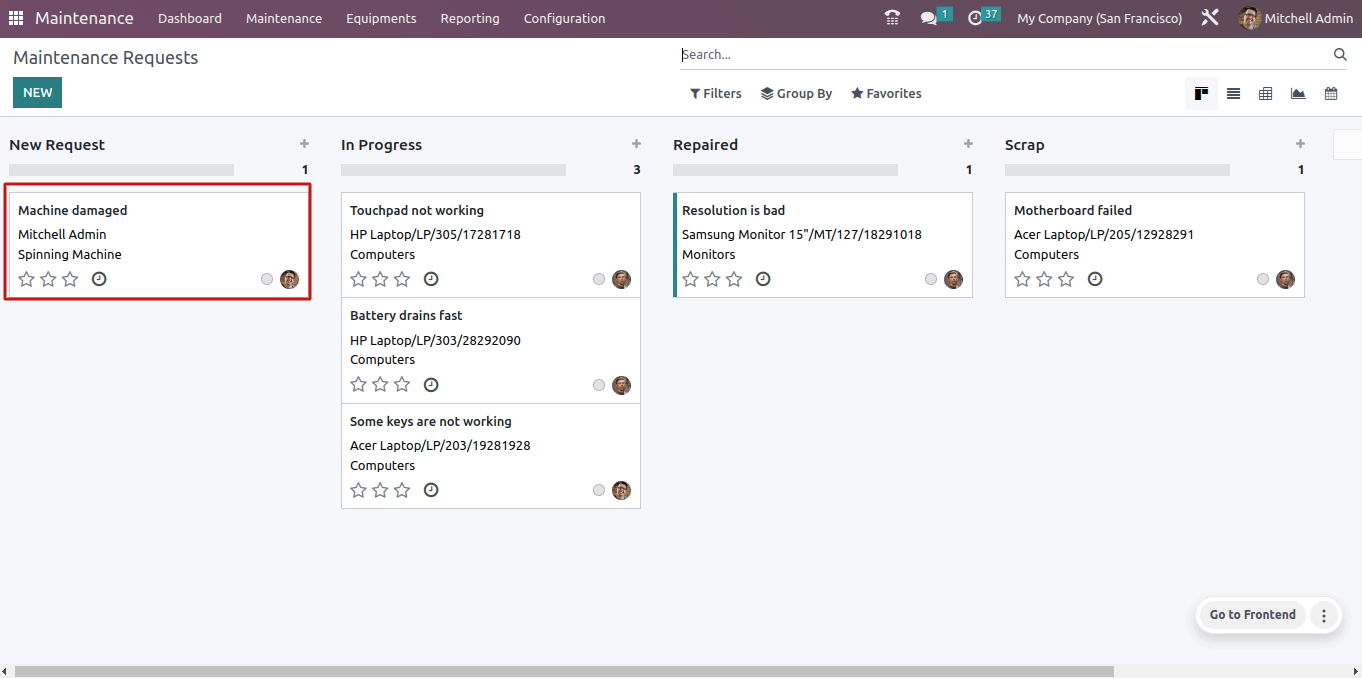
Then change the request stage from New Request to Repaired.
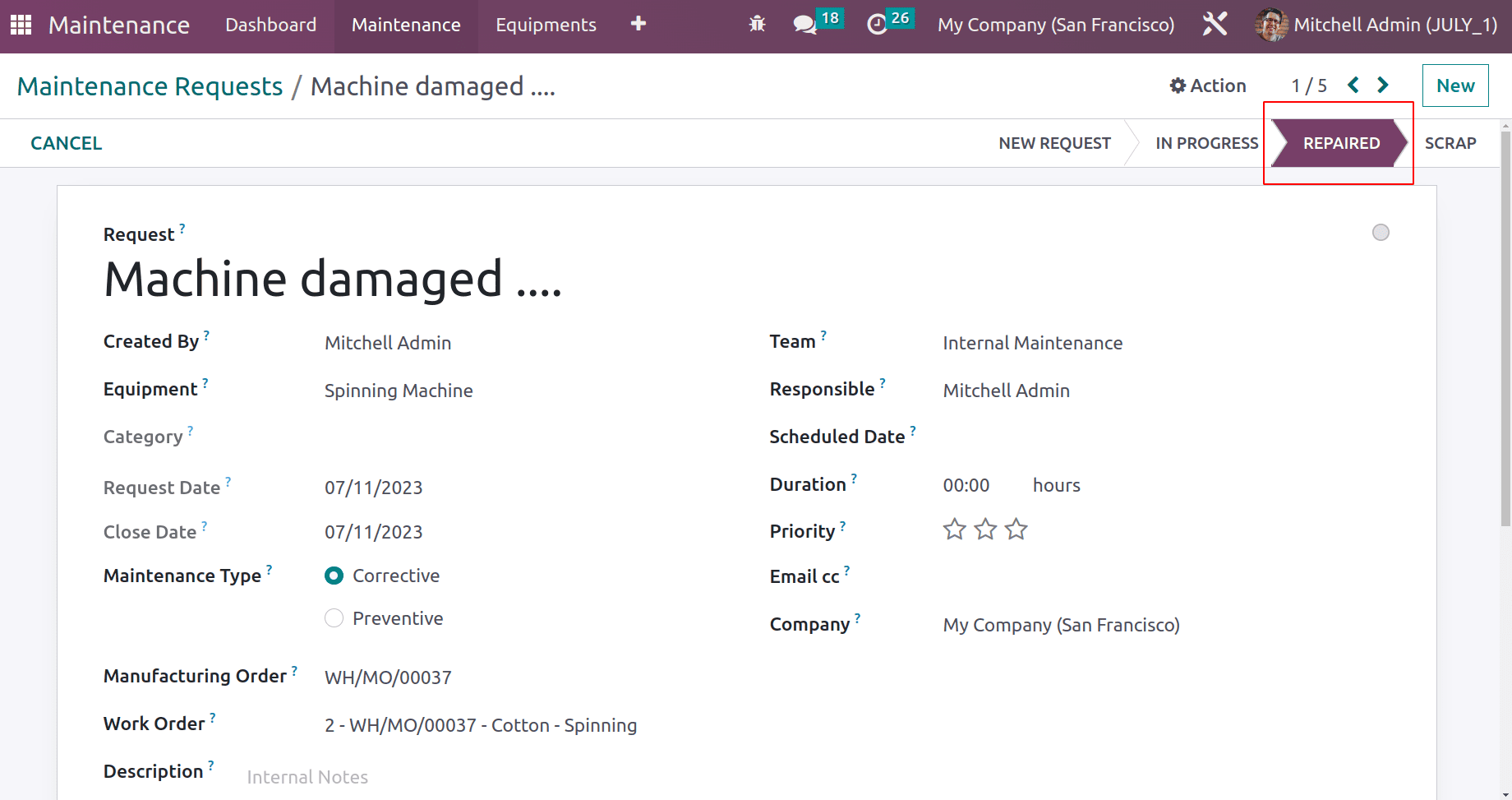
Then return to the manufacturing order and click the Unblock option to continue the operation.
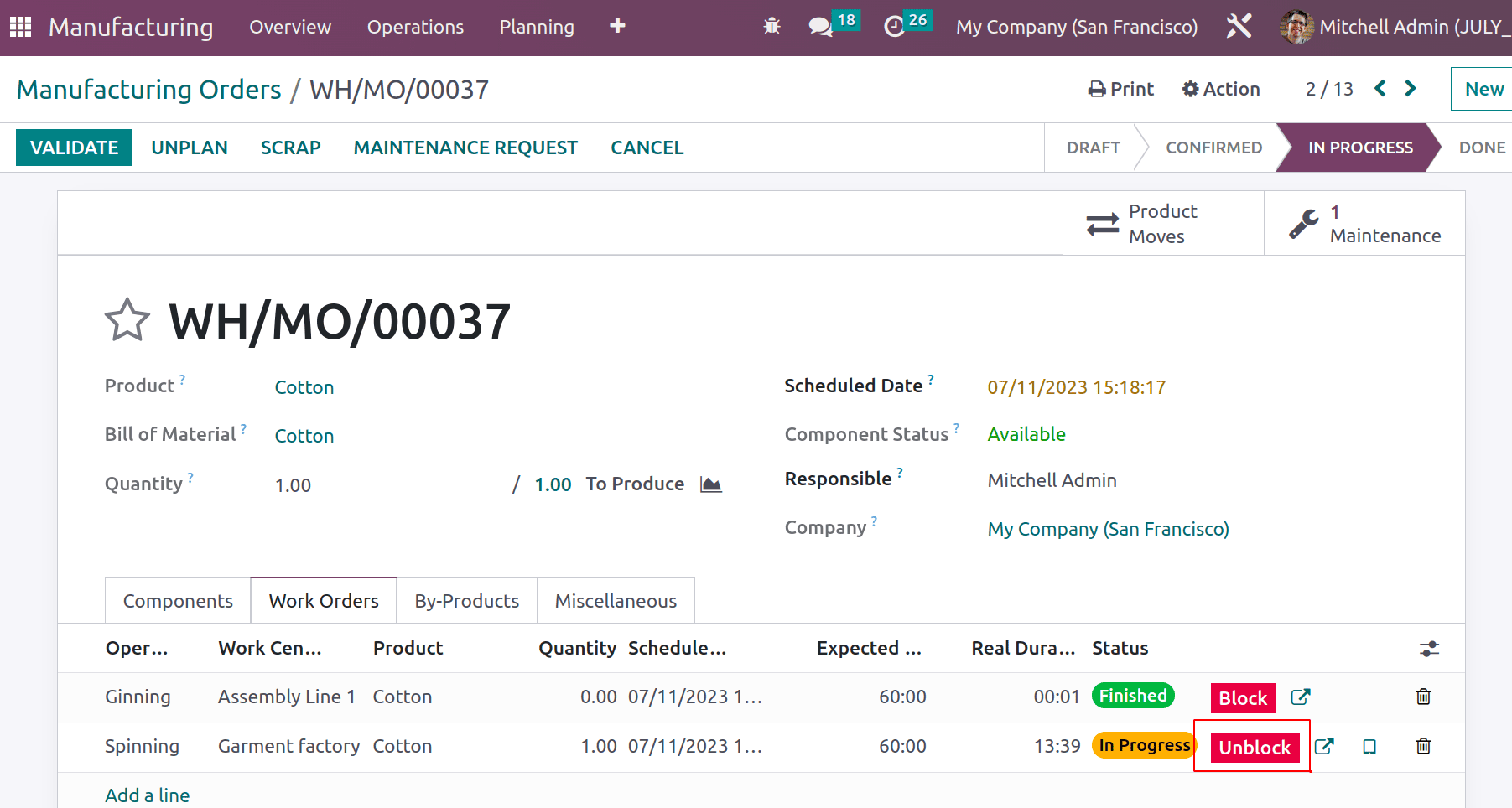
After you've completed both operations, click the Mark as Done button.
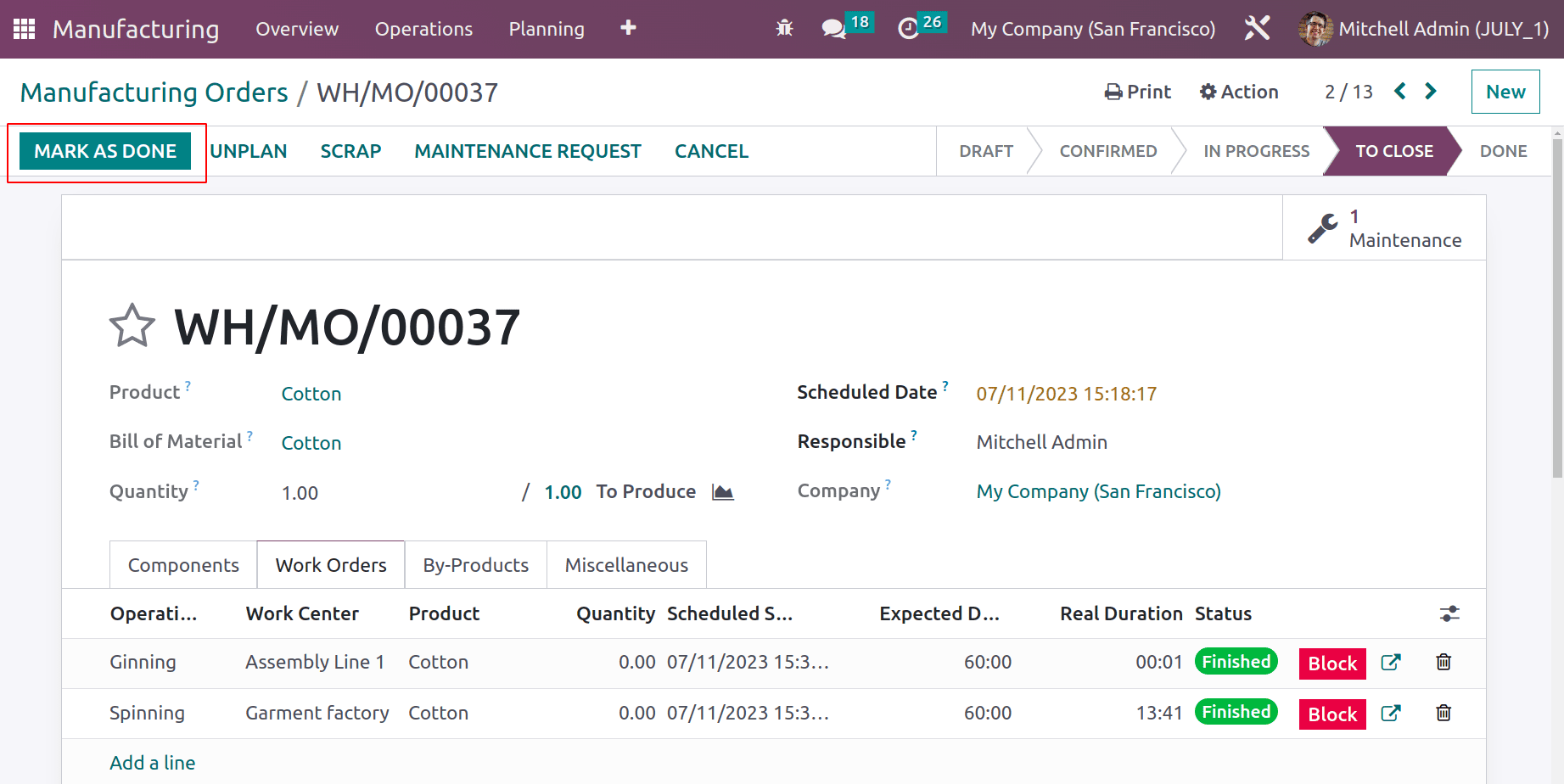
After completing the manufacturing order, a smart tab named Maintenance was created there. While open, you can view the maintenance request that was created.
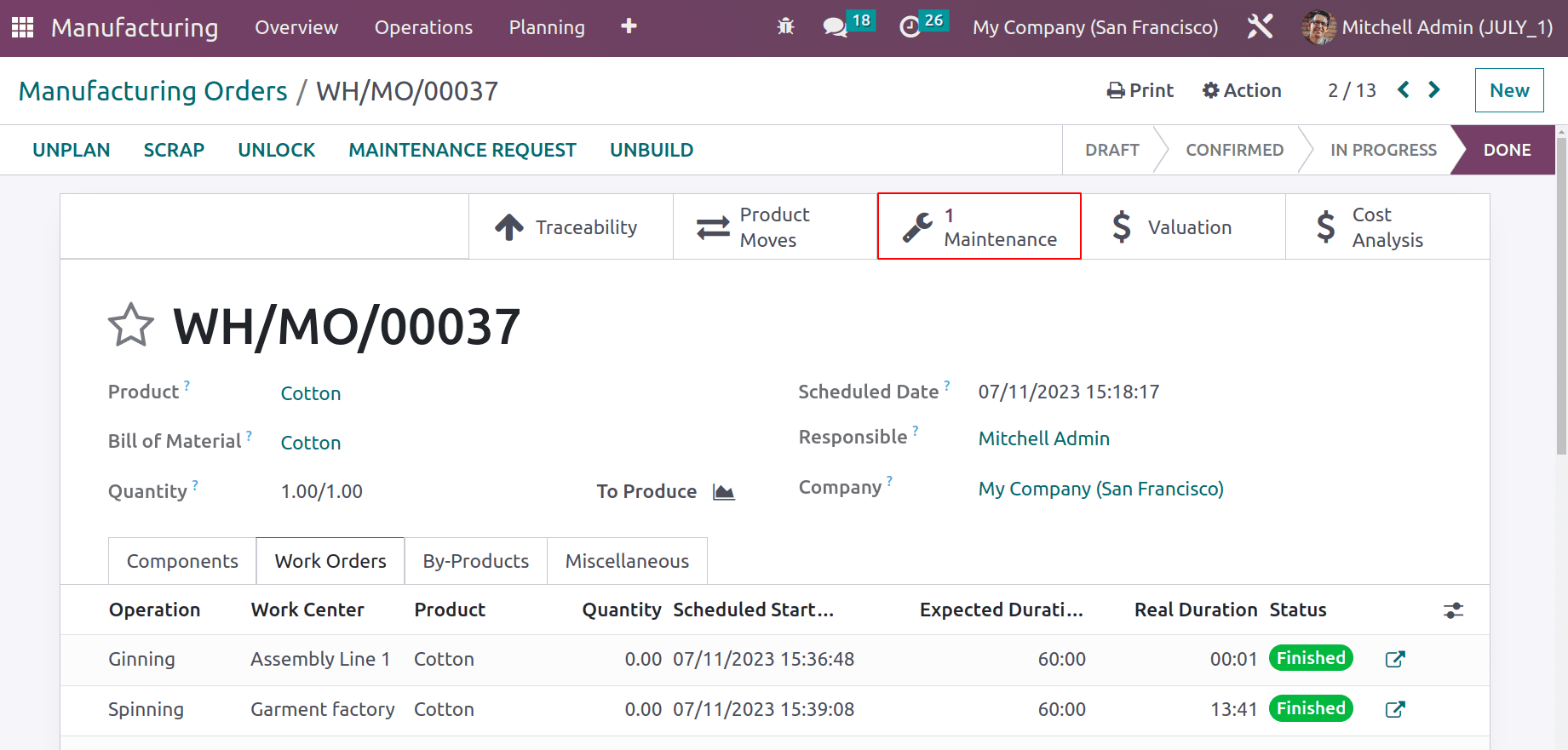
Finally, integrating the manufacturing module’s maintenance request feature will help to increase production speed and equipment efficiency.
